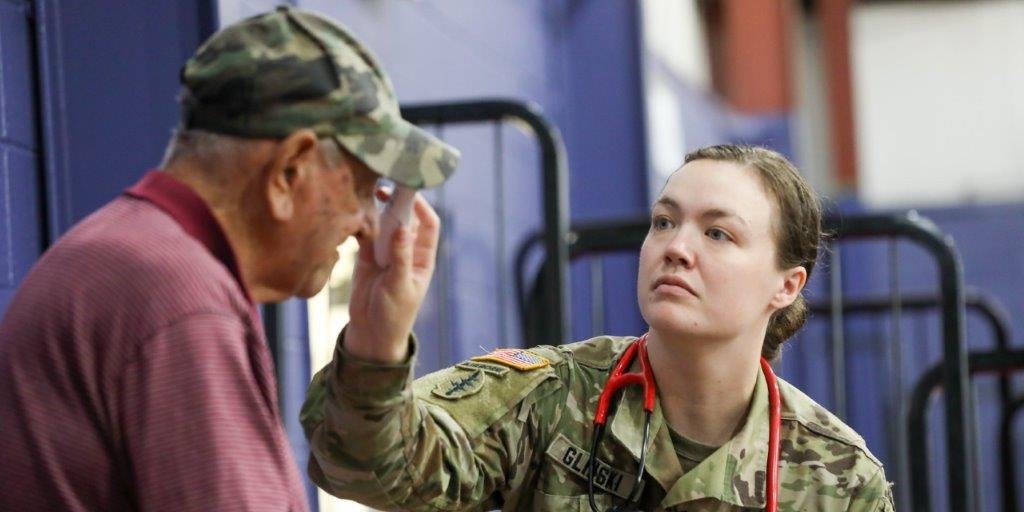With television cameras rolling and the sounds of traffic on the San Fernando Valley's busy freeways in the background, Gov. Gavin Newsom on Thursday threatened to take away state funding from counties that don't make progress on their homelessness issues.
“If we don't see tangible results, we're going to reallocate the funds,” Newsom said.
“I truly believe we need a local government effort. This is a crisis. Act as a crisis.”
The Democratic governor's unbridled frustration over the lack of progress on his top priority, homelessness, is nothing new, nor are his warnings about stripping funds from unwilling counties. Now halfway through his second and final term, Newsom is using his magisterial platform to ratchet up public pressure and pin the blame for California's most prominent humanitarian crisis on local leaders.
Los Angeles County in particular has been a frequent target of Newsom's ire, and on Thursday the governor again criticized the county for delaying implementation of a law that would expand the criteria for people to be held against their will.
His visit to Pacoima came after his calls to remove homeless camps appeared to be largely ignored last month in Los Angeles, where elected officials criticized the order or said it would mean no change in their policy approach. The governor's executive order required his administration to remove camps on state land and urged cities and counties to do the same.
“Strategies that simply move people from one neighborhood to the next or fine them instead of housing them are not effective,” said Mayor Karen Bass. Los Angeles County Supervisor Lindsay Holbert said the county is already working on “emergency and humane encampment solutions.”
Two weeks later, Newsom donned a T-shirt, aviator sunglasses and a baseball cap and accompanied California Department of Transportation workers to clean up an encampment near the Interstate 5 Freeway entrance in Pacoima. The governor said he signed the executive order “with intention.”
“People may choose to make no changes,” Newsom said Thursday. “That's a decision that's possible. It's a decision that I'll make. If that's the outcome, I'm going to change how the funds are spent. It's not complicated, and we're going to send the funds to people who actually want to get the job done.”
The governor and experts agree that homelessness is a decades-old problem, but they are divided on whether Newsom's more conservative policy approach and focus on accountability will help solve the problem. A lack of affordable housing, low wages and a high cost of living are at the heart of the problem, exacerbated by mental health issues and substance abuse.
The Newsom administration has spent more than $24 billion on numerous homelessness initiatives, including cleaning up encampments, moving Californians off the streets and sidewalks, and retrofitting hotels and motels into temporary shelters. The state has given local governments more spending flexibility, giving cities and counties the power to force Californians into treatment under programs like CARE Court and expanded guardianship.
Governor Newsom's ballot measure, Proposition 1, which voters narrowly approved in March, is expected to provide 10,000 drug addiction treatment and residential beds and more than $6 billion to expand treatment.
But Newsom's policy approach to encampments and incarceration has been a contentious issue between him and homeless advocates, and he is aligned more with conservatives than progressives in his own party. The governor has argued that he has done his job by providing more funding, tools and authority to address the problem at the request of cities and counties.
“There are no more excuses,” Newsom said. “We have the money. We have the flexibility. We have the go-ahead. We have the state's support. The public is demanding it. If this isn't the most important issue, then you're not paying attention. This is the biggest blemish on California's reputation.”
In June, Governor Newsom praised a U.S. Supreme Court decision that allowed the city of Grants Pass, Oregon, to enforce a law banning public camping, even though the city did not have enough shelter to provide for people living in the encampments.
Scholars and homeless advocacy groups have criticized Newsom's encampment orders, issued in response to the ruling, as a response to political pressure that could make the problem worse, rather than offering solutions that would help California's most vulnerable residents.
“People can't just disappear,” said Margot Kushell, a professor of medicine at the University of California, San Francisco and director of the Benioff Initiative on Homelessness and Housing. “It's not easy to get out of this. I have deep sympathy for everyone's frustrations. I'm frustrated too. I want this to end. I know this is unacceptable, but I think when you're in a hole, you need to stop digging.”
Kushell and others said California's fundamental problem is a lack of affordable housing. Though Newsom's administration has spent a lot of money on homelessness, Kushell said the state is still failing to build enough housing even as the demand for housing continues to grow.
A state audit also found that California failed to monitor the effectiveness of its expensive homelessness programs, raising questions about whether Newsom's efforts are worth the cost as the state struggles with budget deficits. The governor has called for more accountability for how local governments spend state funds.
The state budget enacted in July expands state responsibilities Housing Responsibility Unit The bill would give the state oversight over how homeless assistance funds are distributed to cities and counties, and would increase the number of employees for that task. Assembly Bill 3093It seeks to require local governments to create housing programs that target all income levels, including the homeless population.
San Jose Mayor Matt Mahan praised Newsom for his focus on increasing accountability.
Mahan said developing more affordable housing is crucial, but addressing the issue immediately would take too long and be too expensive. San Jose is focusing on leveraging state and federal funding to provide transitional and temporary housing communities and give people a way to “get off the streets.”
Last month, Governor Newsom told San Diego County that he was returning a $10 million grant to build 150 tiny homes because the county had not done enough to address the issue, and that the state intended to redirect the funds to San Jose.
Mahan said he supports the idea of a statewide framework with targets and specific goals for local governments to build shelters and treatment facilities for homeless residents.
“I think we can get out of the fantasy world of prioritizing solutions that just happen to work if we just have another $100 billion,” Mahan said.
















